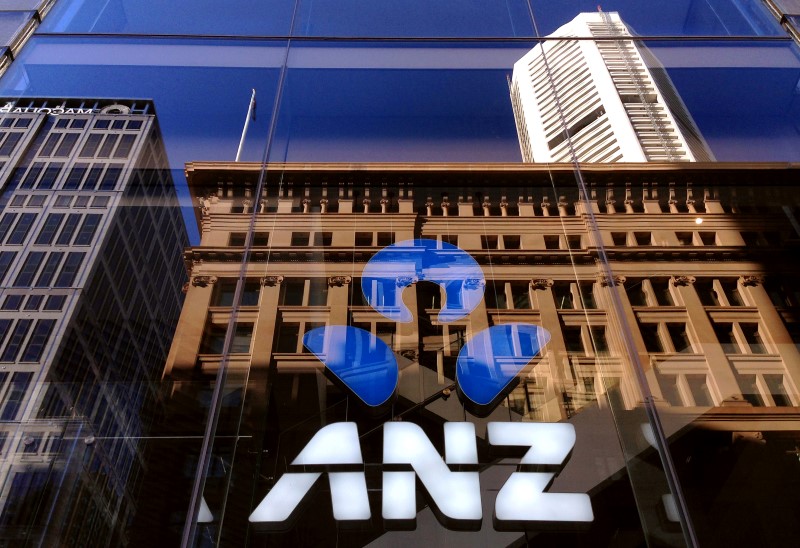By Paulina Duran
SYDNEY (Reuters) - Australia's banking system has more money than it can use, a challenge that will likely grow next week with the central bank widely expected to trim interest rates to near zero and boost the amount of bonds it buys.
With the country trying to emerge from a COVID-induced recession, fiscal and monetary authorities have pumped billions of dollars in cash into the economy, cut interest rates to a record low and introduced a wage subsidy scheme.
Further measures to spur credit demand are on the cards, including scrapping "responsible lending" laws, and on Tuesday the Reserve Bank of Australia is expected to cut its cash rate to just 0.1% and increase its bond buying.
But bankers say they don't need all that money.
"There's all this liquidity flushing around and I don't have much productive use for it, because people don't want it," Australia and New Zealand Banking Group Ltd (AX:ANZ) CEO Shayne Elliott said on Thursday.
Australia's household debt-to-income ratio is at a record high of near 200% compared with a median level of less than 150% for 22 advanced economies, one reason borrowers are reluctant to borrow more.
"Money is essentially free today. Making it more free doesn't really change anything," said Elliott, after announcing a 40% slump in profits.
"It actually becomes a bit of a problem because it ... becomes a drag to our margins."
Net interest margins, a key gauge of profitability for banks, have already shrunk from over 3% in early 2000s for the four major lenders, to just above 2% now, official data shows.
Bankers say another rate cut and extra cash from the RBA are unlikely to spur credit demand.
However, low rates and the central bank's bond-buying programme will help keep servicing costs low for the government. The country's gross debt is seen surpassing A$1 trillion ($710 billion) next fiscal year.
At the height of the pandemic, credit growth in Australia contracted as workers and businesses hoarded cash and banks became more risk-averse. Repayments on almost one in every 10 dollars in their loan books were frozen under forbearance programs.
Housing credit has since recovered, with latest data showing 3.3% annual growth in September, higher than 3.1% in January.
In another encouraging sign, the Reserve Bank of Australia (RBA) thinks the A$2 trillion economy may have expanded in the September quarter.
But the overall outlook is still dour, with business failures expected to rise and unemployment likely to remain elevated for a long time to come.
Specialist business lender Judo Bank expects a further A$40 billion of "unproductive liabilities" accumulated by idle businesses, including deferred rent, tax and other debts to fall due from March next year when some temporary support measures end.
"Liquidity is not the problem at all," said Judo CEO Joseph Healy.
"The big banks are overwhelmed by the challenges of dealing with their existing customers, so they have been much more cautious in lending to new customers."
